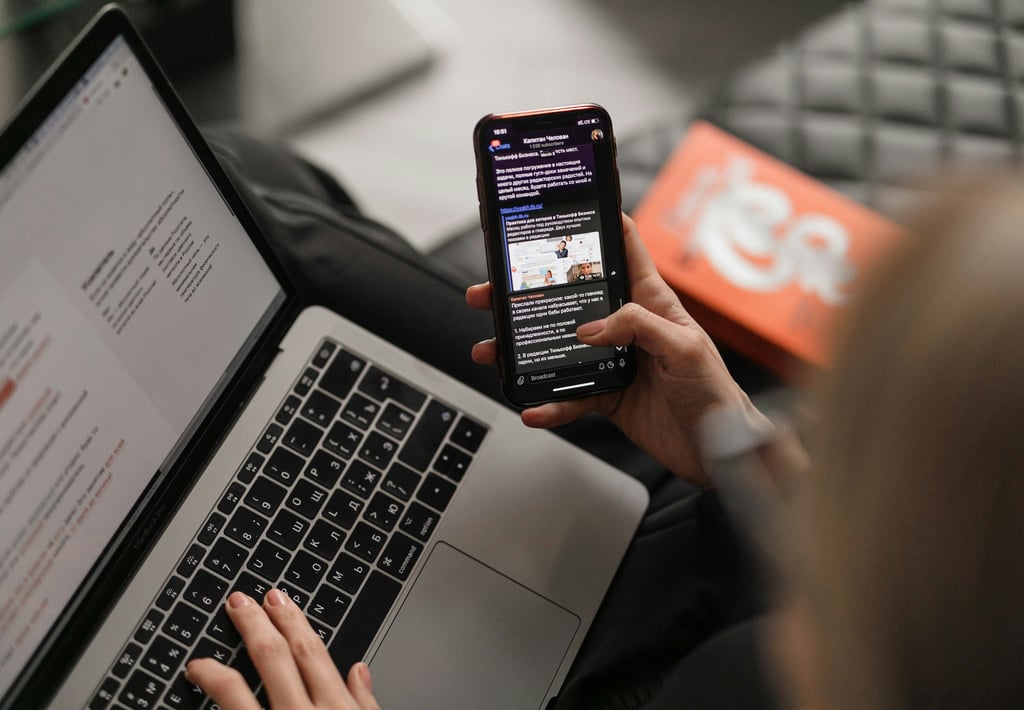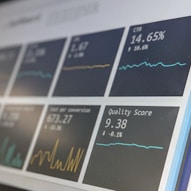In the Belly of the Beast: A Reflection on Social Media
This article is an exploration of the paradoxical nature of social media in the backdrop of our lives. The author delves into the various influences of social media and issues a call for caution.
INTERNETSOCIAL MEDIA
Pournamasi Mohapatra
5/17/20248 min read


I've got to be a hypocrite to deem social media as troublesome while also having a shameless amount of screen time. However, with an undertone of panic, I'm here to delve into this apparent contradiction and attempt to offer some meaningful insights.
If we were to view this polarity from two opposing perspectives, social media is infusing us with constant doses of instant gratification through the power of visual, brief, abundant and engaging content. Yet, what we don't actively realize is that it is affecting our capacity to nurture a sustainable sense of contentment.
At the very heart of it, I personally find myself spending a considerable amount of time on Instagram because of my love for music, cinema, art, drama, beauty, fashion, food, and travel—a wide array of interests. I can access information, insights and updates on these topics in a swift and colourful manner. Is the knowledge readily available in vast quantities? Yes. Is the knowledge always in-depth, true-to-character, and well-researched? I am not so sure. In fact, of the ten travel bloggers I began following since the onset of the pandemic in 2019, I have unfollowed eighty percent of them. Here’s appreciating the sincere efforts of the few bloggers who go the extra mile to offer us an honest perspective. Some things are too sacred to be compromised for the sake of monetary gains and inflated follower counts.


Another reason why we find ourselves engaging in endless scrolling on social media could be its appeal as a platform for self-expression. It is right there: both inspiration and audience in one place. However, there's a caveat. While it offers a valuable canvas for self-expression, it also wields substantial influence. Take note of the fact that we are constantly being fed trending prototypes and told what’s ideal, what's cool, what's fashionable, where to travel, what to eat, what music to listen to, how to socially behave, where to invest your money, and even what political inclinations we should have— this constant feeding, perhaps explaining the term social media 'feed'— plays a great deal into our subconscious and may potentially be eroding our natural instinct to form original thoughts.
Certainly, every thought is subject to organic influence through various traditional mediums. Think of reading, traveling, watching televised content, and taking part in social conversations—where you’re engaging with these interactions within structured contexts, allowing for deliberate processing. Contrastingly how it happens in these social media platforms, you are not being subjected to a chaotic influx of unfiltered information. Information that you process like you would process noise in a metropolitan traffic- you don’t. It just sits on top of your consciousness, leaving some fleeting impression, neither substantial nor coherent.
An Independent Thought


Disable notifications, maybe?
Every day, from morning to night, we let "push notifications" interrupt our thoughts, presence in the physical world, and productivity at work without exercising any self-control. Let’s choose to be distracted by a co-worker asking to go for a coffee break instead of being constantly disrupted throughout the day by apps that deserve our attention only when we decide to give it. Our mind has the natural need to wander off when it needs a break. By giving it a reason to wander 5 or 10 times in an hour by a plethora of applications is consciously choosing to compromise your cognitive ability.
Here’s a few instances of how social media shapes up in my life. What's wildly perplexing is that they fall on opposite ends of the spectrum. Let's look at some cons first.
Instance 1: Being up to date at the cost of being present
I like to read the news in the old-school way: in the morning newspaper delivered by my newspaperman right at my doorstep that I collect groggily, rubbing the sleep out of my eyes while I fetch the morning milk. I like my news laid out in the broadsheet format; my chai cools beside me as I immerse in the rich language, flow of words, depth and power of thought found in the long form writing. I am quite content not knowing the latest news instantly on my phone and missing out on the opportunity to chime in a smart comment at the dinner table conversations. I would rather be in the moment with the people I'm eating with, understanding how their day was or how they loved the dessert. I would much rather be a present person than an updated person, and I feel comfortable in that choice.




Navigating The Spectrum
Now, consider another perspective. While it was acceptable for people to share opinions on an 11-step skincare routine, the situation changes when a child is holed up in their room for weeks, depressed. Amidst attempting to navigate their mental well-being, I wish they didn’t unconsciously turn to 'reel' therapy for guidance. Many of the mental health advice offered on reels are not by qualified professionals. The algorithm often pushes reels that it thinks you’ll “like” but are not necessarily correct. The phenomenon is known as the “echo chamber effect”: imagine being in a closed room where your own ideas constantly bounce back at you, leading you to engage more with content you already agree with, thus limiting exposure to diverse viewpoints. In this particular context, what I am trying to convey is that many young people today are quite convinced that they are suffering from a particular trauma, even when that might not be the case. This can be counterproductive to their healing process, as it solidifies beliefs that may not align with reality.


Instance 2: Being trapped in an Echo-Chamber Effect
On the opposite end of the spectrum, pros are quite glaringly (and “aesthetically”) obvious. However, I would like to mention two significant ways in which social media has undeniably proven itself to be a star performer.
Instance 1: Surge in small businesses
The current economic climate has never been more favourable for individuals to explore diverse career choices, aspirations, and passions. Social media stands as a major catalyst behind the surge in small business ventures. As a close friend of mine, who recently left her corporate job to start her own travel company, Somya aptly put it: “Marketing has never been easier, delivering content has never been this easy, and finding my target audience and building my personal brand has never been this straightforward. Now is the most opportune time to leverage the power of the social media economy. I'm sure it would have taken twice as long if I had only traditional methods available.”




Instance 2: Conversations in politics
As we all know, India, the largest democracy in the world, is currently conducting its quintessential Lok Sabha elections. This election marks the first time that a new form of social discourse is taking primacy over traditional print media. While print media has struggled to maintain credibility, social media is empowering many voices and diversifying the narrative beyond the control of paid media houses and party workers. Real conversations and real questions are now taking center stage. However, the veracity of the information we see on social media can vary widely, with some content being factual and some being highly opinionated or speculative. This subjectivity requires individual judgment, and while social media can have a dangerously polarizing impact, it also provides the opportunity to be exposed to multiple perspectives.
Summing up this range of positives vs negatives
While I love it when I stumble upon a relatable reel to share a laugh with a friend, or when the right shopping link finds me at the right time, or when I encounter a breathtaking photograph of a cheetah, or when I come across a life-changing kitchen hack, or when I see a beautiful woman dancing in the rain; I wish there was a way of feeling all of these right feelings without a wager of being consumed into a form of psychological addiction. I wish it were simpler, like childhood in the 90s when we bonded over a 6 pm television show and not in the comments section.
The art of vision boarding traces its roots in the enigmatic sands of ancient Egypt. Back then, people crafted intricate hieroglyphics onto scrolls of papyrus, each symbol representing their deepest aspirations and dreams. However, this ancient tradition remained relatively obscure until it was popularized by self-help authors, and eventually, social media platforms served it up to us on a silver platter, accelerating its widespread adoption. But


Popularization of 'The Vision Board': Are we doing it right?
What’s astounding is that everyone’s algorithm is unique. For these gigantic and highly sophisticated computing systems, you and I aren’t part of a collective; you and I are distinct entities. In other words, my interaction with social media is unparalleled; no one else on the planet encounters it in precisely the same manner as I do. Everybody’s social media feed meets them like a personalized entertainer. I remember vividly an image of a girl riding a horse, her hair like flames in the light of an orange sunset on a beach, and it enthralled me. I wouldn't know about such a world if Instagram hadn't curated it into my algorithm. Through such astute content marketing, social media often manages to foster a deep belief in a certain kind of lifestyle- a vision that we construct for ourselves- and we think, “This is the kind of stuff I should dream of and achieve one day.”
Pinterest does quite literally help me build my vision board. Someday, perhaps, I'll embody this idealized self and achieve happiness in its fullest form. Or, on a disappointing note, I may have completely derailed myself from my true inner purpose. Something that I may not be paying attention to right now because it simply is not audible amidst the noise of an “algorithm”.
Neither do I express this with any certainty, nor am I speaking for everyone. If you're fortunate and know your game, your social media usage is likely working to your advantage. Conversely, if that's not the case, there's a good chance that your time would be better spent elsewhere, away from the app.
Although I have only scratched the surface, I believe I've managed to sow a seed of doubt, both in my mind and in the mind of the reader. At the very least, I recognize the necessity of questioning the information presented to me. Moreover, I am committed to accepting and practicing only that which withstands my scrutiny.


Just to experiment, today I will purposefully search for content that portrays a positive perspective on the 9 to 5 lifestyle (counterbalancing the prevalent narratives that often make us feel negative about working a corporate job.) I’ll even “like” and “comment” on a post or two. This deliberate action just so that I can confuse the billion-dollar AI engine in return and challenge the “filter bubble” surrounding me. It is the only way I can truly leverage the potential of my favourite social media platform. In this process, I might even marginally avoid having my attention exploited and monetized every second.
After having said all this, I'm still going to share this article on my Instagram and ask my friends to read it. Hence, the word “panic” in the beginning.